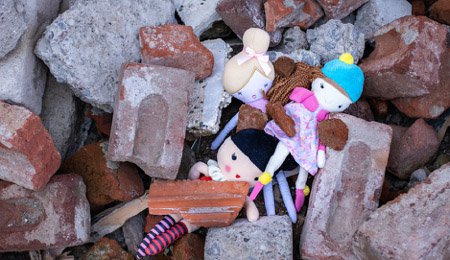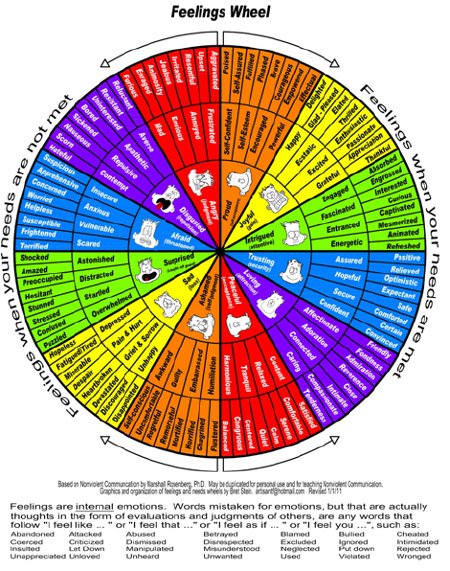FOR IMMEDIATE RELEASE
NSF-Funded CONVERGE Releases New Training Module: Conducting Emotionally Challenging Research

At times, extreme events research involves devastating damage and loss. (Source: Shutterstock.com)
Natural hazards researchers can learn best practices for navigating the emotional challenges of conducting extreme events research
Boulder, CO, September 30, 2020 The NHERI CONVERGE facility announces the release of a new educational tool for natural hazards researchers: the Conducting Emotionally Challenging Research Training Module.
This online module focuses on the emotional challenges researchers face when conducting extreme events research. This course is part of a series of online training modules developed by the CONVERGE research team. These interactive, 30- to 60-minute modules cover topics that support hazards and disaster researchers and research teams to conduct ethical and methodologically sound studies.
The National Science Foundation-sponsored CONVERGE is headquartered at the Natural Hazards Center at the University of Colorado Boulder and is led by Lori Peek, sociology professor and director of the Center.
A focus on researchers emotional health
This latest module from CONVERGE draws on research literature to present personal stories of the emotional experiences that scholars have faced when confronted with particular situations or subject matter that caused discomfort, pain, anger, or other difficult emotions. Hazards and disaster researchers often conduct research in areas where communities are experiencing extreme loss, displacement, and even death, said Skye Niles, a CU Boulder sociology graduate student and one of the lead developers of the module. It is vital that researchers are trained to recognize and understand how to manage their emotions to ensure that they can effectively continue their research in an ethical and sustainable manner. This free module intends to help in this endeavor through providing guidance on ways to cope with and harness the power of emotions in research."
The interactive modules sliders and diagrams describe key concepts related to emotions in research, such as compassion fatigue, secondary traumatic stress, and post-traumatic growth. It concludes with strategies to cope with and learn from the emotional challenges of extreme events research. We believe this module is useful for the diverse researchers from different disciplines who study hazards and disasters, said Bertha Bermudez Tapia, PhD candidate in sociology at CU Boulder and a lead developer of the module. In addition to the modules written content, we provide links to curated resources, including key readings, web resources, and mental health tools, hotlines and treatment locations.
It is crucial to recognize that even as researchers strive to be objective, we are still human. The research process often has emotional impacts that can potentially affect us directly or indirectly, said Tracy Fehr, also a PhD candidate in sociology and the third lead developer. Fehr continued, Through self-awareness of how our own emotions are affected, researchers can develop a higher level of reflexivity and understanding. This added awareness supports positive ways of coping with the difficult research topics we address in hazards and disaster research and ultimately strengthens the research itself.

Heuristics like the feelings wheel can help researchers examine emotions objectively. (Source: The Center for Nonviolent Communication)
Certification opportunity
After completing the training module, users may take a 10-question quiz to receive a certificate of completion, which will become part of a larger credentialing system for hazards and disaster researchers as more modules are released. We are so excited to add this latest module to the existing offerings, said Lori Peek, principal investigator of the NHERI CONVERGE facility. It covers challenges in the field as well as desk research. It is an ideal time to focus on the ways that social scientists as well as engineers, physical scientists, and others may be affected by difficult situations in their work.
Those new to social science research are invited to attend an upcoming CONVERGE webinar where the developers will demonstrate the Conducting Emotionally Challenging Research Training Module on Thursday, October 8, 2020 from 2:00-2:30 p.m. MDT.
On the CONVERGE website, find lists of available resources and previously released modules on topics of social vulnerability and disasters, disaster mental health, cultural competence, and institutional review board procedures. The next training modules to be released in the series include:
- Understanding and Ending Gender-Based Violence in Fieldwork (in partnership with the Fieldwork Initiative to Stop Sexualized Trauma)
- Broader Ethical Considerations for Hazards and Disaster Researchers (in partnership with the Centers for Disease Control and Prevention)
- Collecting and Sharing Perishable Data (in partnership with the Centers for Disease Control and Prevention)
- Reciprocity in Field Research (in partnership with the U.S. Geological Survey)
To receive updates and information on new CONVERGE training modules and other free online resources, please subscribe here.
Media Contact:
Lori Peek, PhD
Professor, Department of Sociology
Director, Natural Hazards Center
Principal Investigator, NHERI CONVERGE, SSEER, and ISEEER
University of Colorado Boulder
lori.peek@colorado.edu
About the Natural Hazards Engineering Research Infrastructure
Funded by the National Science Foundation, the Natural Hazards Engineering Research Infrastructure, NHERI, is a network of experimental facilities dedicated to reducing damage and loss-of-life due to natural hazards such as earthquakes, landslides, windstorms, and tsunamis and storm surge. It is supported by the DesignSafe Cyberinfrastructure. NHERI provides the natural hazards engineering and social science communities with the state-of-the-art resources needed to meet the research challenges of the 21st century.





